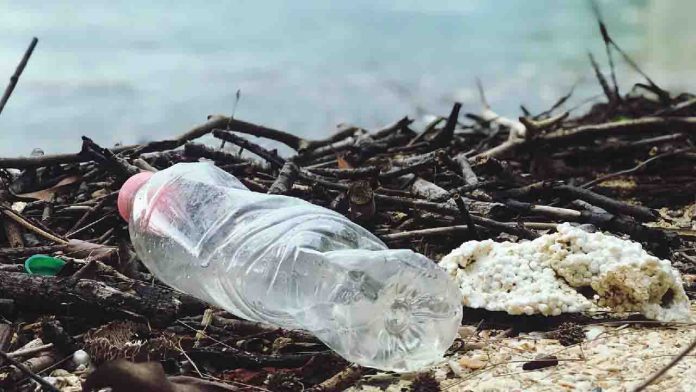- Bring your own reusable bags when shopping: Instead of using plastic bags at the grocery store, bring your own reusable shopping bags. Many grocery stores and retailers sell reusable shopping bags made of fabric, canvas, or other durable materials. These bags are sturdy, can hold more items than plastic bags, and can be used over and over again. Keeping a few reusable bags in your car or near your front door can make it easy to remember to use them.
- Say no to plastic straws: When dining out, ask for drinks without a straw or bring your own reusable straw made of metal, glass, or bamboo. Many restaurants and bars have started to phase out plastic straws in favor of paper or reusable straws, but it’s always a good idea to ask for no straw at all. If you prefer to use a straw, investing in a reusable one can be a great option.
- Use a reusable water bottle: Carry a refillable water bottle with you instead of buying single-use plastic bottles. Disposable plastic water bottles are a major source of plastic waste, and using a refillable bottle can help cut down on this waste. There are many types of reusable water bottles available, including ones made of stainless steel, glass, or BPA-free plastic.
- Use reusable containers: Pack your lunch in a reusable container instead of using disposable containers or plastic wrap. Packing your lunch in a reusable container is not only better for the environment but can also save you money in the long run. Many reusable containers are microwave and dishwasher safe, making them convenient for everyday use.
- Choose products with minimal packaging: Look for products with minimal packaging or packaging that can be recycled or reused. Many products are packaged in excessive plastic, cardboard, or other materials that end up in landfills. By choosing products with minimal packaging, you can reduce your waste and help the environment.
- Avoid buying single-serve items: Instead of buying single-serve packets of snacks, opt for larger bags or containers that can be portioned out as needed. Single-serve items like snack packs, juice boxes, and individual yogurts are convenient, but they also create a lot of waste. Buying larger containers and portioning out snacks or drinks yourself can be a better option.
- Bring your own utensils: Bring your own reusable utensils like a fork, knife, and spoon when eating out or getting takeout. Many fast-food chains and restaurants provide plastic utensils that are used once and then thrown away. Bringing your own utensils is a simple way to avoid contributing to this waste.
- Choose non-plastic alternatives: Choose non-plastic alternatives like glass, metal, or bamboo when buying items like razors, toothbrushes, and hairbrushes. Many personal care items are made of plastic and are designed to be thrown away after a few uses. Choosing alternatives made of durable materials can help reduce waste.
- Make your own cleaning products: Avoid buying cleaning products that come in plastic bottles by making your own with simple ingredients like vinegar, baking soda, and lemon juice. Many cleaning products come in plastic bottles that are difficult to recycle. Making your own cleaning products can be a simple and cost-effective way to reduce waste.
- Recycle and dispose of plastic responsibly: Always recycle plastic items when possible and dispose of them responsibly to prevent them from ending up in the ocean or landfills. Properly disposing of plastic items can help prevent them from causing harm to the environment and wildlife. If you’re unsure about how to properly dispose of a plastic item, check with your local waste management facility.







